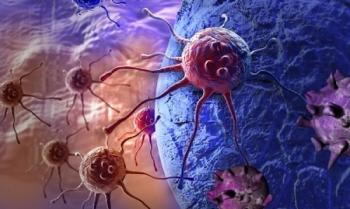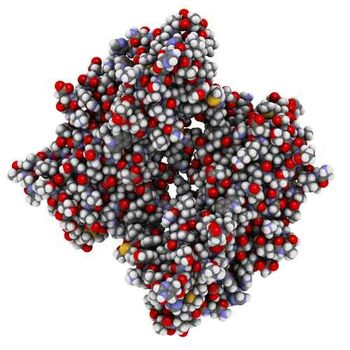
A new test may help direct treatments for patients with rare breast cancer mutations.

The CINtec PLUS Cytology assay is indicated for women who undergo cervical cancer screening and test positive for high-risk types of human papillomavirus.

Because regular SMS messaging is not fully HIPAA-compliant, one solution may be to initiate contact via a text that links to an online platform.

The keynote presentation will be broadcast virtually on 4 dates this fall and highlight cancer-specific guidance for pharmacists during the COVID-19 pandemic.

Buffalo Bills Hall of Fame quarterback Jim Kelly shared with specialty pharmacists his story of perseverance, tincluding his fight against squamous cell carcinoma in his upper jaw.

Magrolimab is a first-in-class, investigational anti-CD47 monoclonal antibody used in combination with azacitidine in treatment-naïve patients with high and very high-risk myelodysplastic syndrome,

Understanding the role of abemaciclib (Verzenio) in managing patients with hormone receptor positive and human epidermal growth factor receptor 2 negative metastatic breast cancer is crucial.

It may take cells in different stages of development to cause breast cancer to progress and spread, according to recent research published in eLife.

Amid rising cancer care costs, a focus on chemotherapy stewardship may result in cost savings, according to a session of the HOPA Practice Management 2020 Virtual Learning Event.

The FDA grants fast track designation to the highly-selective N-terminal domain inhibitor EPI-7386 for the treatment of adult patients with metastatic castration-resistant prostate cancer.

Bristol Myers Squibb announced it will present data from research spanning 15 different cancers with high unmet need at the ESMO Virtual Congress 2020.

Figuring out how to target vulnerable cells in breast cancer tumors can help treat the disease more effectively.

In a phase 3 clinical trial, oral paclitaxel was found to be just as effective intravenous paclitaxel in metastatic breast cancer.

The current study found no link between personal use of permanent hair dye and the risk of most cancers or cancer-related mortality.

The FDA also granted priority review to pralsetinib for the treatment of patients with advanced or metastatic RET-mutant medullary thyroid cancer and RET fusion-positive thyroid cancer.

In a virtual symposium titled Clinical Updates in Extensive-Disease Small Cell Lung Cancer: A Primer for Pharmacists Caring for Patients, 2 expert speakers discussed pivotal changes in the treatment landscape for small cell lung cancer.

A patient has Lynch syndrome, a hereditary condition that puts young people at high risk for colon cancer.

In a Pharmacy Times® webcast, Katie Culos, PharmD, BCOP, a specialist in cellular therapy and hematology discussed with Katherine Lin, PharmD, BCPS, BCOP the many policies and procedures that have been implemented during the COVID-19 pandemic by providers for cancer care.

A first-in-class targeted therapy, VB-111 is administered by intravenous infusion once every 6 to 8 weeks.

Many patients battling cancer are in dire need of support, encouragement, and care coordination.

Optimizing the best pharmaceutical agent while minimizing adverse effects is paramount in patients with cancer-associated venous thromboembolism.

Patients may have many questions before receiving CAR T-cell therapy, so accurate counseling is vital to their support.

At the Smilow Cancer Hospital, oncology pharmacists play an important role in the delivery of care for patients with cancer.

Despite an ongoing long-term debate, no link was found between cancer and the use of ACE inhibitors, beta blockers, and other common antihypertensive drugs.

A recent study demonstrated the safety and clinical activity of E7 TCR-T cells in the treatment of highly refractory metastatic HPV- 16+ cancers.

Oral chemotherapy may be an important option for patients during the COVID-19 pandemic, as it would allow them to receive treatment at home.

Study results have demonstrated that pharmacists are effective partners in improving care, reducing cost, and avoiding drug complications for patients with cancer.

Current advances in the analysis of the mutational status of different genes are providing investigators insights into new treatment pathways that can improve outcomes for patients.

Women who typically have a better prognosis in the primary breast cancer setting experienced worse survival after a second primary breast cancer.

Despite improvements in the understanding and treatment of chemotherapy-induced nausea and vomiting (CINV), nausea and emesis continue to be a distressing adverse event for patients.